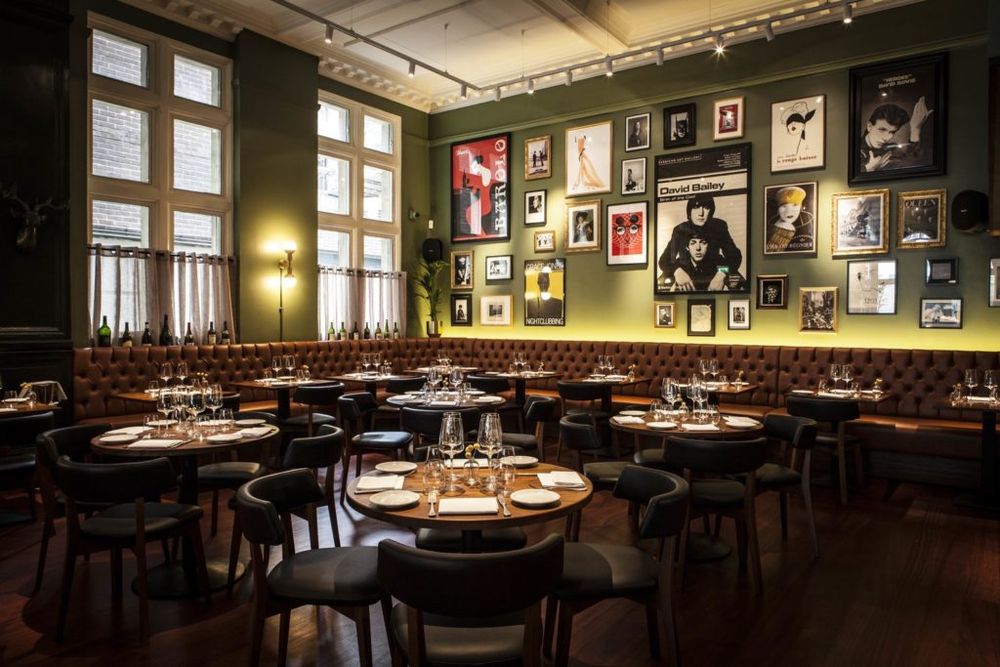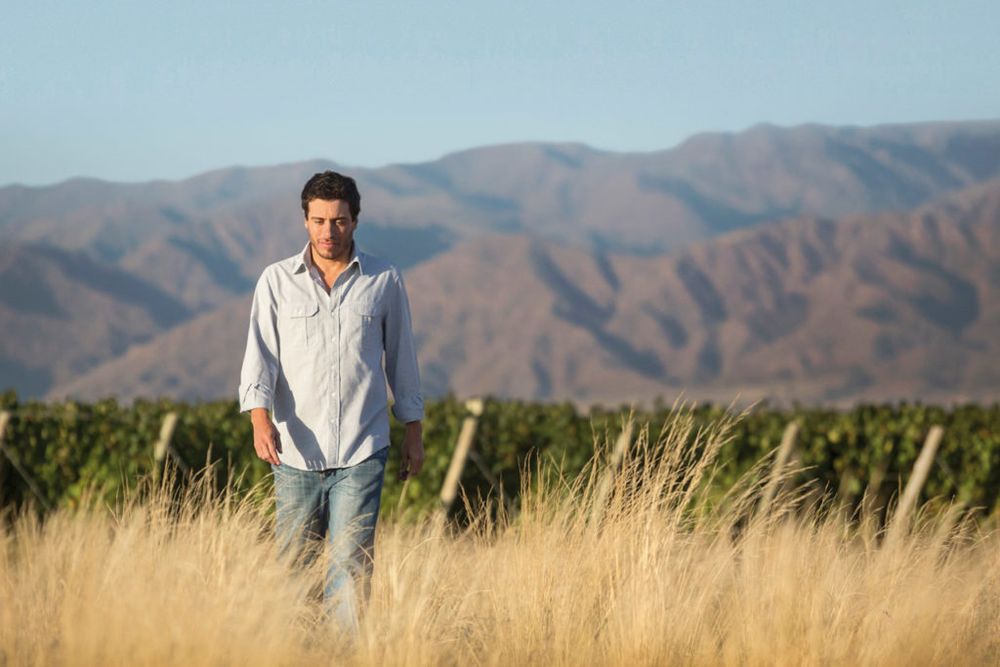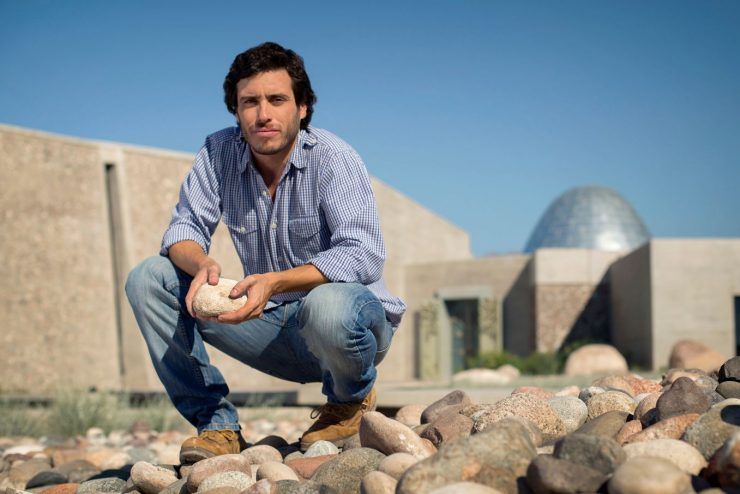Sebastian Zuccardi explains his approach to winemaking to Harry Crowther and how imperfections in wine can actually take them to another level.
I first started out in the wine trade as a poor student. In an attempt to make ends meet, as my student loan dwindled away on Leeds’ compulsive, inherent party lifestyle I managed to wangle my way into Gaucho as a waiter. This was the light bulb moment for me with wine and I haven’t looked back since. Savouring the eclectic mix of wines available and the wine training sessions when the team would crack open a pre-shift bottle ahead of a busy service.
Argentina plays host to one or two iconic, world famous wine producers, to say the least. Yes, it’s the home of the mighty Malbec, which comes hand in hand with a surplus of bottom shelf boozers that do a good job of quenching the UK consumer thirst for arguably the most popular red varietal in the on/off-trade, and there are some fine wine examples to boot.
I recently held a ‘Single Vineyard’ training session at my Grain to Grape education platform that offers the city’s bartenders accessible wine education – all are welcome. This was a chance for me to revisit some of the (all too often) perceived generic wines of the world, beyond the realms of the bulk marketplace and zero in on… you guessed it, some single vineyard wines. Argentina was on the bill, it was great.
This resonated with me during my recent evening with Sebastian Zuccardi, son of owner José Alberto, atHolborn’s new Gezellig restaurant.

The wine trade’s new London favourite – Gezellig in Holborn.
I hate Mondays, most of us do, so I try to do something social (if I can) just to ease myself into the week, and the team at Zuccardi and Hatch Mansfield provided the perfect tonic for my Monday blues, cheers guys!
I have been relatively familiar with Familia Zuccardi’s wines since the days of the beef board at Gaucho. In particular the ‘Serie A’ and ‘Q’ ranges, which take a particular terroir specific focus and make use of Tempranillo as well as the more familiar Malbec and Chardonnay.
All about the terroir
What comes next however is Sebastian Zuccardi taking the notion of terroir, and turning the volume up, quite a bit. “The first thing to remember is that we make mountain wines, there is no ocean and this is one of the most continental areas in the world,” explained Zuccardi as he made the point of telling us how he likes to “ferment dirty”.
Having started his work with the family in the vineyard, I suppose it made sense that Sebastian Zuccardi is a stickler for a sense of place. And now that he oversees the winemaking side of things, he has it all his own way.

Sebastian and José Alberto Zuccardi, who together have done so much to elevate premium Argentine wine around the world.
We are not perfect, and wine shouldn’t be either, was the theme he returned to. It reminded me of Dr Jamie Goode’s ‘Flawless’ book about wine faults (highly recommended). It encourages one to consider the differences between a beautiful flaw and an irreparable fault, the idea that imperfections are what make a wine, or anything else for that matter, beautiful.
I see this philosophy knitted into Zuccardi’s psyche. The wines are not polished, less oak, more concrete, both on the fermentation and ageing fronts.
“I like to think I pick at the perfect time, if we do this then the wines don’t need to be worked, a delestage at the beginning (for reds) and then we just keep the cap wet for the rest of the fermentation. I like shorter macerations… I am looking for identity, not perfection,” he explained.
What feels a little weird is that his search for identity over perfection has rendered his wines, near enough, well… perfect. High scores across the board from the world’s most formidable critics, not that I care too much, but it’s a nice guideline touch for many. Here’s my take on the a selection of his wines.
Zuccardi, Valles Bonarda, Uco Valley, 2018
Hatch Mansfield | RRP: £14.25
A blend of three vineyards found between 1,300-1,400m ASL. Fermented in concrete. Blue fruit pastel fruit with a dusting of fig and raisin. Juicy, round and a fabulous purity of fruit that persists far longer than it should for the price point.
Bonarda is a grape that is largely considered apt for Argentina’s domestic market. Phil Crozier, my former boss at Gaucho, took it seriously when he took Sebastian Zuccardi’s entire first vintage in 2009 off his hands, when it was a backseat project, of sorts. That is a wine we now know today as ‘Emma’ Bonarda, named after Sebastian’s grandmother – it’s picked up an award or two along the way as well.
The vein of perfect imperfection continued. After the success of the 2009 haul, Sebastian Zuccardi started to use new oak for Emma, which apparently “killed” the wine, “old oak is better for this variety, it’s a soft wine”. “When you are working with Bonarda” Crozier added, “the best way to treat it is to just let it be”.

Sebastian Zuccardi believes it is the terroir and ‘sense of place’ that really dictates how the wine is going to taste
Zuccardi, Fosil San Pablo Chardonnay, Uco Valley, 2018
Hatch Mansfield | RRP £53.85
1,400m ASL. 70% concrete fermentation, 30% barrel. Natural ferment.
Made from some of the last fruit that Zuccardi pick at the back end of their harvest. It has a waxy nose, with subtle notes of honey and lemon. It’s pithy and citrus driven with an insanely pure, mineral finish.
“I feel malo-lactic fermentation gives complexity to a wine in its younger years, at the beginning. The absence of malo gives this Chardonnay the chance to develop complexity, naturally, with age,” said Zuccardi.
Zuccardi, Aluvional Paraje Altamira, Malbec, Uco Valley, 2015
Hatch Mansfield | £75.40
Natural ferment in concrete. 1,100m ASL.
A wet stone earthy focus up top. Savoury red fruit. A flash of stemmy green austerity across the palate, a wine with tension that screams class!
Zuccardi, Piedra Infinita, Malbec, Uco Valley, 2015
Hatch Mansfield | £100.00
100% concrete fermentation. Whole bunch. 30% barrel aged (500l), the rest in concrete.
“This should be en primeur,” claimed Phil Crozier, now UK ambassador for Wines of Argentina. Outstanding purity of fruit. Savoury, herbal notes that flirt with a nervous energetic verve. Malbec stripped back to its bare bones, and its stunning!

The award winning Zuccardi winery in Mendoza’s Uco Valley
Beauty in imperfections
Sharing an evening with these wines is a reminder that when the minimal intervention, hands off approach to winemaking is done right, it is truly great. There is a sense of history about the family’s operation. From the massal selection of Malbec vines, homage to old cuttings, to the fact that at Sebastian Zuccardi’s 93-year-old grandmother still works on site.
As for clones? What clones? Clones produce wine that is all too reliable, according to Zuccardi. “The beauty of our wines is in the imperfection,” he stressed. Not that that there is much of that. Oh, and a petty cool side note, all of Zuccardi’s concrete is made from the sand, stone and water from his vineyards.
As for the link up with Hatch Mansfield? It has been a case of patience and looking for the right partner. “We waited and waited. First we wanted a sense of the people, then the wines,” said managing director, Patrick McGrath MW.
- Harry Crowther is a wine consultant and educator who runs his own training programmes for both bar and wine staff through Grape and Grain.
- You can also sign up and read his regular blog at Grape Times.






























